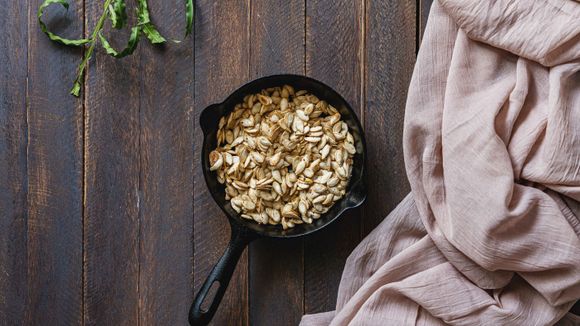Symptoms of hypothyroidism
Hypothyroidism can manifest in various ways, and its symptoms can be mild to severe. Common symptoms include:
- Fatigue
- Weight gain
- Cold intolerance
- Dry skin and hair
- Hair loss
- Constipation
- Depression or mood swings
- Slow heart rate
- Muscle aches and stiffness
- Joint pain and swelling
- Heavy or irregular menstrual periods
- Impaired memory and concentration
Causes of hypothyroidism and when to consult a doctor
Several factors can contribute to hypothyroidism, and understanding these causes can help guide appropriate medical consultation. Consult an endocrinologist or primary care physician if you suspect any of the following issues:
Hashimoto's thyroiditis
- An autoimmune disorder where the immune system attacks the thyroid gland
- Causes inflammation, leading to reduced hormone production
- Most common cause of hypothyroidism
Thyroid surgery
- Removal of all or part of the thyroid gland
- Can result in hypothyroidism due to insufficient hormone production
Radiation therapy
- Treatments for head and neck cancers may damage the thyroid gland
- Can lead to hypothyroidism
Medications
- Certain drugs, such as lithium and amiodarone, can interfere with thyroid function and cause hypothyroidism
Iodine deficiency
- The thyroid gland requires iodine to produce hormones
- A lack of iodine in the diet can result in hypothyroidism
Congenital hypothyroidism
- Some babies are born with an underdeveloped or absent thyroid gland, leading to hypothyroidism
Pituitary gland dysfunction
- Rarely, a problem with the pituitary gland can cause high TSH levels and hypothyroidism
Side effects of medical drugs
Some medications can cause or exacerbate hypothyroidism. Examples include:
- Lithium: Used for bipolar disorder treatment, may interfere with thyroid function
- Amiodarone: An antiarrhythmic drug that can affect thyroid hormone production

Photo by Francesco Ungaro on Unsplash
Herbal and natural remedies
There are several herbs and natural remedies that may support thyroid health. These include:
Ashwagandha (Withania somnifera)
- An adaptogenic herb that may help balance thyroid hormones
- Known for its stress-reducing and anti-inflammatory properties
Bladderwrack (Fucus vesiculosus)
- A type of seaweed rich in iodine
- May support thyroid function in cases of iodine deficiency
Siberian ginseng (Eleutherococcus senticosus)
- An adaptogenic herb that may help improve energy levels and reduce fatigue
- May support overall immune function
Nutritional advice
- Consume foods high in iodine, such as seaweed, fish, and dairy products
- Include selenium-rich foods like Brazil nuts, tuna, and eggs in your diet
- Incorporate zinc-containing foods, such as oysters, beef, and pumpkin seeds, to support thyroid function
- Limit consumption of goitrogenic foods (e.g., raw cruciferous vegetables) that may interfere with thyroid hormone production
- Stay hydrated and maintain a balanced diet that includes a variety of fruits, vegetables, lean proteins, and whole grains

Photo by Anshu A on Unsplash
Questions and Answers
Below are ten frequently asked questions that are not covered in the article:
Q: Can stress contribute to hypothyroidism?
A: While stress itself does not cause hypothyroidism, chronic stress can exacerbate symptoms and may contribute to the development of autoimmune conditions like Hashimoto's thyroiditis.
Q: Is hypothyroidism hereditary?
A: Genetics can play a role in the development of hypothyroidism, particularly in autoimmune thyroid conditions like Hashimoto's thyroiditis.
Q: Can hypothyroidism be reversed?
A: In some cases, addressing the underlying cause of hypothyroidism may result in improved thyroid function. However, in many cases, lifelong hormone replacement therapy is necessary.
Q: Is it safe to take herbal supplements for hypothyroidism without consulting a doctor?
A: It's essential to consult a healthcare professional before starting any herbal or natural treatment, as they can interact with medications and cause side effects.
Q: Can I lose weight if I have hypothyroidism?
A: Yes, with proper treatment and a balanced diet, it's possible to lose weight. However, weight loss may be slower due to the reduced metabolic rate associated with hypothyroidism.
Q: How is hypothyroidism diagnosed?
A: Hypothyroidism is typically diagnosed through blood tests that measure thyroid hormone (T3, T4) and TSH levels.
Q: Can pregnancy cause hypothyroidism?
A: Pregnancy can lead to changes in thyroid function, and some women may develop hypothyroidism during or after pregnancy.
Q: How does hypothyroidism affect fertility?
A: Hypothyroidism can cause menstrual irregularities and ovulation problems, which may affect fertility. Proper treatment can improve fertility in many cases.
Q: Are there any specific foods to avoid with hypothyroidism?
A: Limiting consumption of goitrogenic foods, such as raw cruciferous vegetables and soy products, may be beneficial. However, cooking these foods can reduce their goitrogenic effects.
Q: Can exercise help improve hypothyroidism symptoms?
A: Regular exercise can help increase energy levels, improve mood, and support overall health in individuals with hypothyroidism. Always consult with a healthcare professional before starting a new exercise regimen.









